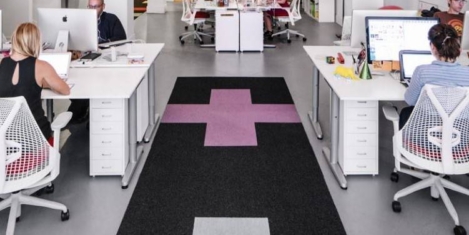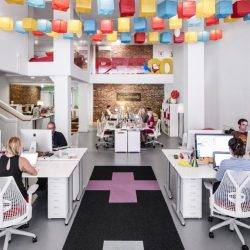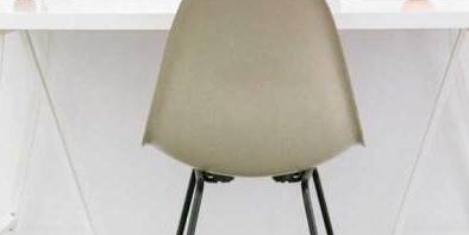October 19, 2018
Smart spaces and the other top technology trends for 2019
 Technology researcher Gartner has highlighted the top strategic technology trends it believes organisations should be aware of in 2019. Gartner defines a strategic technology trend as one with ‘substantial disruptive potential that is beginning to break out of an emerging state into broader impact and use, or which are rapidly growing trends with a high degree of volatility reaching tipping points over the next five years’. One of the interesting points to note is the inclusion of the physical workplace yet again, as we highlighted in our recent feature on the trends shaping office design.
Technology researcher Gartner has highlighted the top strategic technology trends it believes organisations should be aware of in 2019. Gartner defines a strategic technology trend as one with ‘substantial disruptive potential that is beginning to break out of an emerging state into broader impact and use, or which are rapidly growing trends with a high degree of volatility reaching tipping points over the next five years’. One of the interesting points to note is the inclusion of the physical workplace yet again, as we highlighted in our recent feature on the trends shaping office design.











 The new northern home of the BBC is giving London a run for its money when it comes to siting offices for the UK’s top tech talent, with Manchester leading the way, according to
The new northern home of the BBC is giving London a run for its money when it comes to siting offices for the UK’s top tech talent, with Manchester leading the way, according to 
 Work/life balance, and the ability to take more annual leave, is the top priority for most European workers and 52 percent explicitly see this as an incentive for choosing certain benefits claims research from SD Worx. Employees in France (63 percent) prioritise this the most across the Europe, next is the UK, whilst workers in Austria (36 percent) and the Netherlands (32 percent) are least likely to opt for additional annual leave. Flexible working also plays a significant role in the benefits employees would choose, with home working allowances being a key factor for 21 percent of respondents and 21 percent wanting a laptop or smartphone included in their benefits package.
Work/life balance, and the ability to take more annual leave, is the top priority for most European workers and 52 percent explicitly see this as an incentive for choosing certain benefits claims research from SD Worx. Employees in France (63 percent) prioritise this the most across the Europe, next is the UK, whilst workers in Austria (36 percent) and the Netherlands (32 percent) are least likely to opt for additional annual leave. Flexible working also plays a significant role in the benefits employees would choose, with home working allowances being a key factor for 21 percent of respondents and 21 percent wanting a laptop or smartphone included in their benefits package. 




















October 16, 2018
Law firms are finally embracing the agile workplace
by Simon Pole • Comment, Workplace design
(more…)